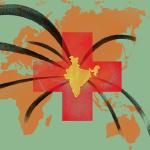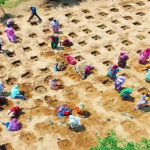Aparna Pasumarthy
Dr. Aparna Pasumarthy is the Garware Post-Doctoral Fellow at the University of Pennsylvania Institute for Advanced Study of India (UPIASI) and a CASI Non-Resident Scholar. Her research interests include gender, careers, organizational behavior, and leadership. Aparna's postdoctoral research project focuses on the (un)sustainable careers of professional men and women in India.




